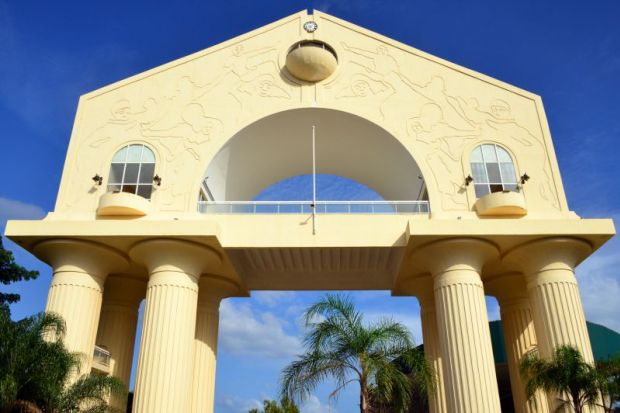The UK’s Medical Research Council is monitoring the situation its researchers in the troubled West African country of Gambia are facing.
About 13 staff with UK contracts are still in the country, where the organisation has several research laboratories, despite rising political tension as the outgoing president Yahya Jammeh has refused to step down.
Just under 40 international staff work at the MRC’s Gambia Unit, which is a major hub for research into infectious diseases and public health.
The MRC said that it gave staff extended leave over Christmas following the country’s election in December, when Mr Jammeh suffered a shock defeat against a former property developer, Adama Barrow.
Of the 40 staff, 26 are still out of the country and due to return on 25 January, but flight tickets will be extended if the situation remains unsettled, a spokeswoman for the MRC told Times Higher Education.
“The unit are in contact with the UK Embassy and are closely monitoring the situation,” she said, adding that contingency plans are in place should circumstances change.
Current advice for staff remaining in the country is to stay at home or within the MRC’s secure compounds.
All staff received a briefing on basic security measures in November and again in early January. “All international staff were offered the opportunity to return to their home countries, and a large proportion took up the offer,” the spokeswoman said.
Mr Jammeh, who took power of the country 22 years ago in a bloodless coup, initially conceded defeat to Mr Barrow but has since reversed his position and declared a 90-day state of emergency. The leaders of other West African countries gave Mr Jammeh until noon on Friday to leave office or be forced out.
The London School of Hygiene and Tropical Medicine, University of London, which has a small number of staff permanently based in Gambia, said that it was monitoring the situation carefully.
A spokeswoman for the institution said: “An evacuation plan for staff is in place if needed. We have delayed the trips of any other staff who were planning to travel to Gambia.”
The MRC has had a presence in Gambia since the 1940s, and its work has been instrumental in the development and testing of pneumococcal and hepatitis B vaccines as well as insecticide-treated bed nets to prevent the transmission of malaria. It has research sites in Fajara, Basse and Keneba.




